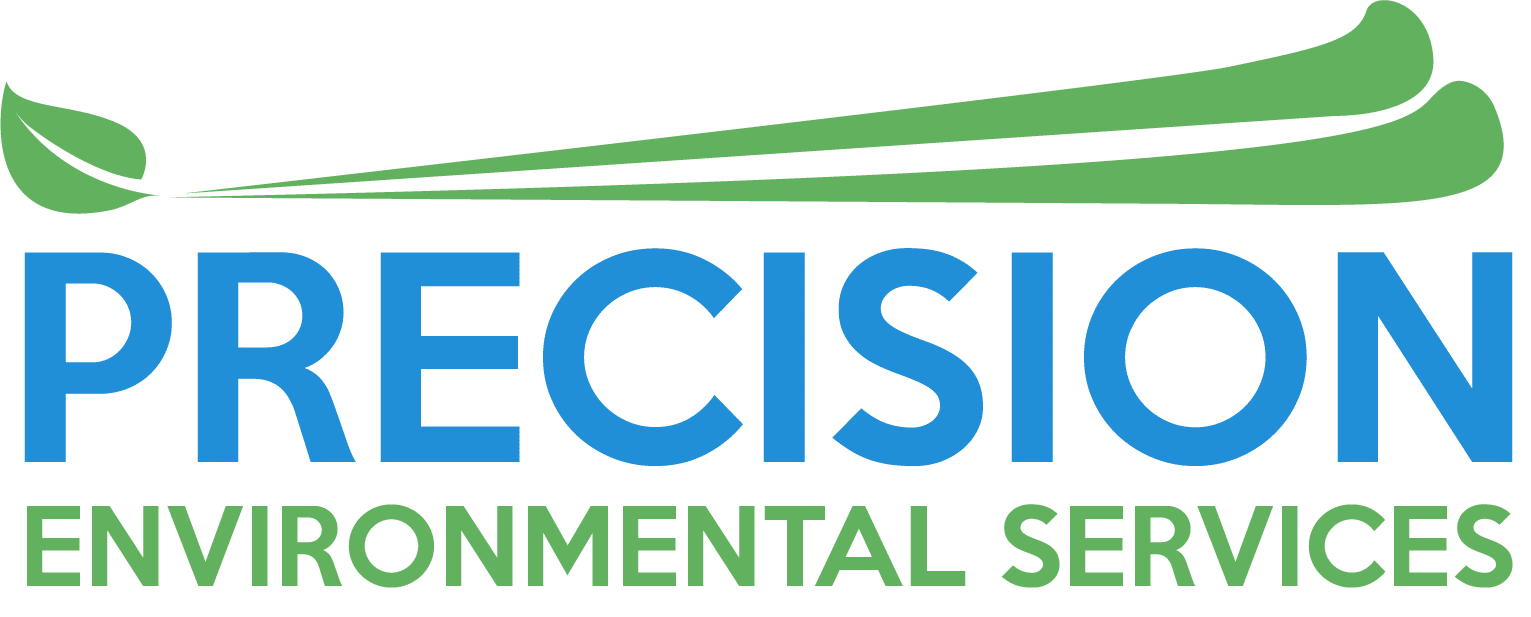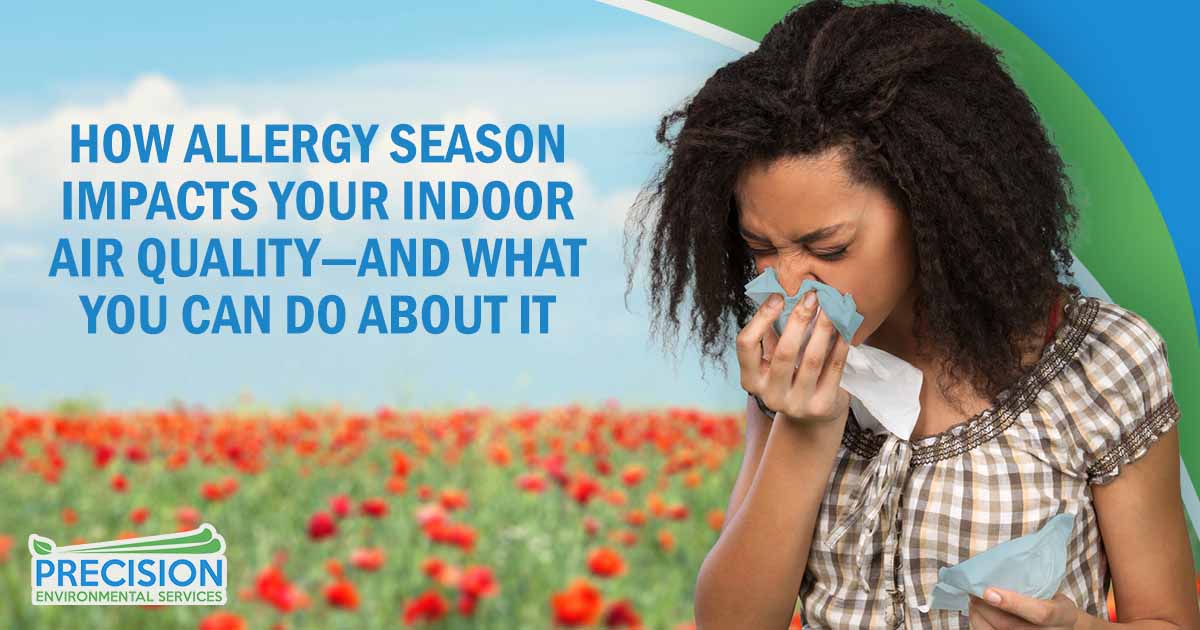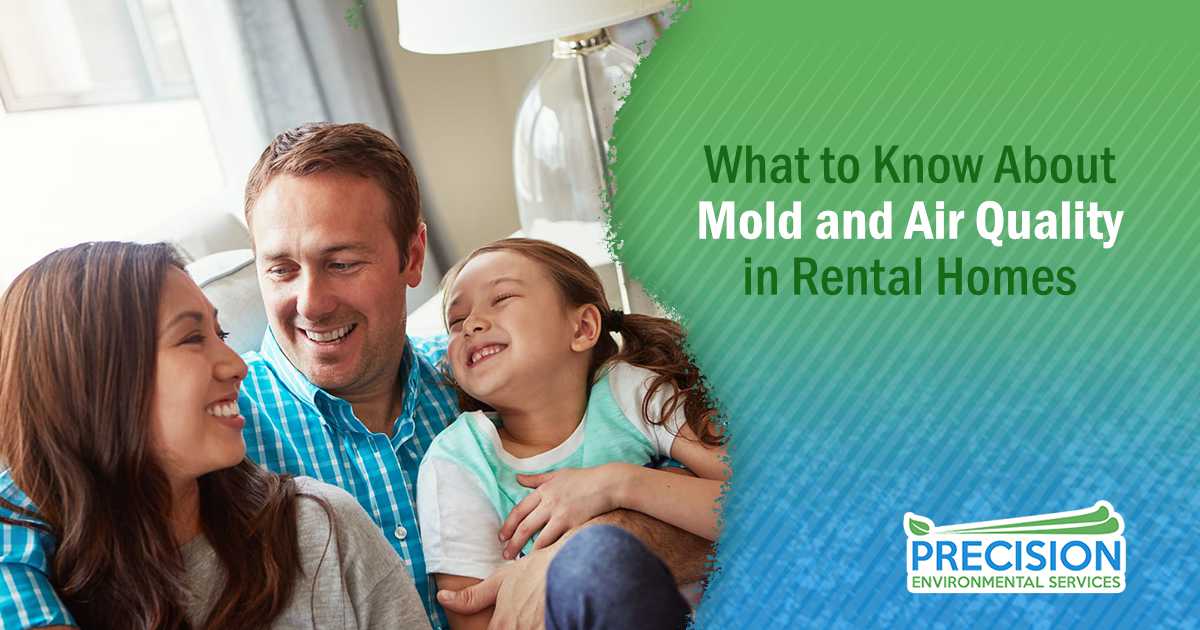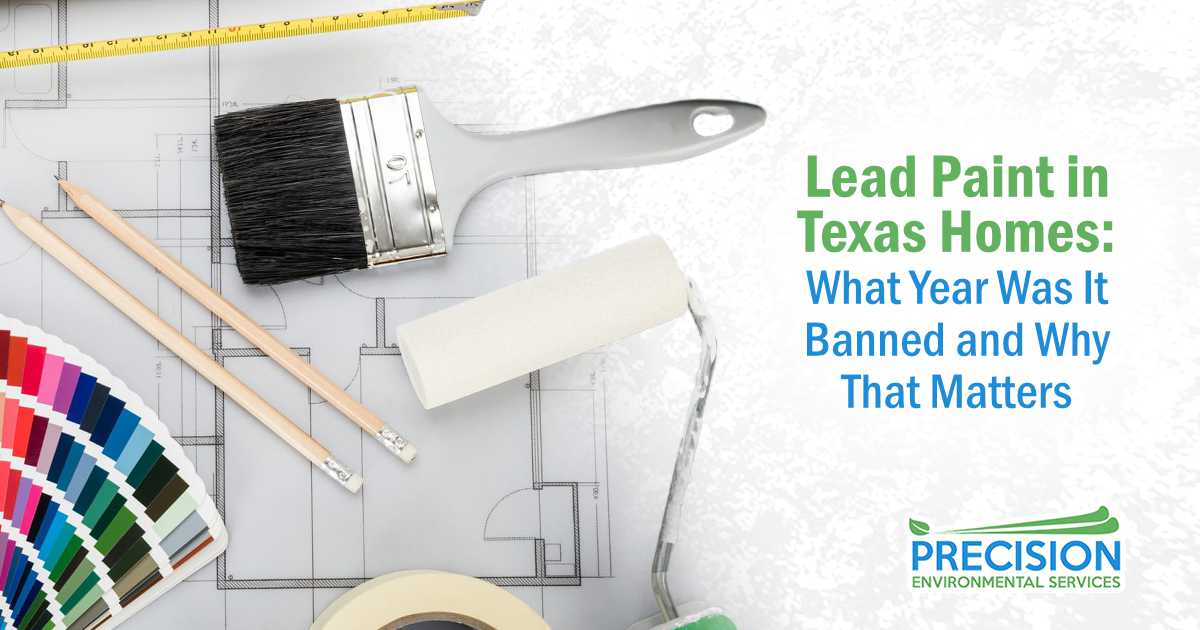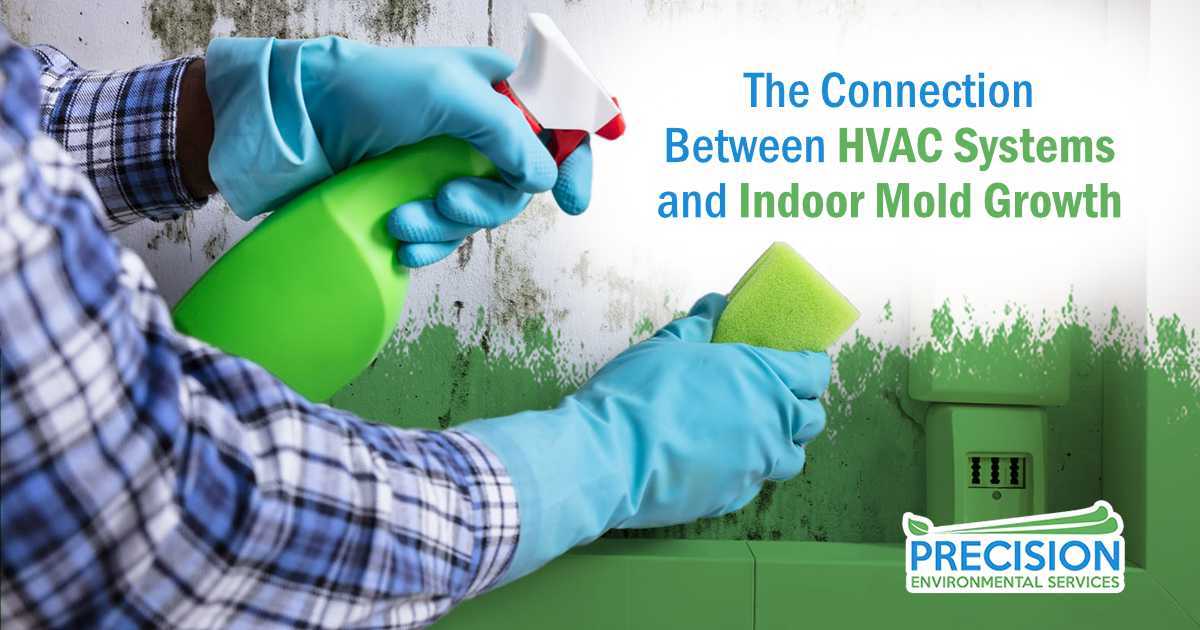Every year, allergy season brings an increase in pollen, mold spores, and other airborne irritants that affect millions of people. While many focus on outdoor triggers, the air inside the home can be just as problematic. Indoor air quality during allergy season often worsens due to the buildup of allergens entering open windows, doors, and HVAC systems. For health-conscious homeowners, understanding and addressing indoor air issues is critical. Solutions like air quality testing for allergies and pollen indoor air solutions can help reduce exposure and improve comfort.
The Hidden Threat of Poor Indoor Air Quality During Allergy Season
Why Allergy Season Triggers Indoor Air Quality Concerns
During allergy season, outdoor allergens such as pollen, mold, and airborne particles increase significantly. These irritants easily enter homes through ventilation systems, open windows, and on clothing or pets. Once inside, they can circulate and settle on surfaces, carpets, and furniture. Without proper filtration or ventilation, indoor air becomes a source of ongoing exposure. This makes indoor air quality during allergy season a growing concern for individuals with allergies, asthma, or other respiratory sensitivities.
Common Indoor Allergens That Intensify in Spring and Summer
Indoor allergens often peak in spring and summer due to increased pollen counts and higher humidity. Common culprits include:
- Pollen: Enters from outdoors and accumulates indoors without proper filtration.
- Mold spores: Thrive in humid environments like bathrooms and basements.
- Dust mites: Multiply in warm, humid conditions and live in upholstery and bedding.
- Pet dander: Becomes more active as pets shed during warmer seasons.
When these allergens combine with poor air circulation, the result is reduced indoor air quality and a greater likelihood of allergic reactions. This highlights the importance of air quality testing for allergies to identify and manage indoor sources of irritation.
Signs Your Home’s Indoor Air Quality Is Affected by Allergies
Physical Symptoms to Watch For
Poor indoor air quality during allergy season often causes noticeable physical symptoms. Individuals may experience frequent sneezing, nasal congestion, itchy or watery eyes, and throat irritation. For those with asthma, symptoms can worsen, leading to more frequent or severe flare-ups. Headaches, fatigue, and difficulty sleeping are common when allergens circulate indoors. If symptoms improve when leaving the house, it may indicate that the indoor environment contributes to the problem.
Environmental Indicators Inside the Home
In addition to physical reactions, several environmental signs indicate reduced air quality. These may include:
- A persistent musty or stale odor
- Visible dust buildup on vents, furniture, or surfaces
- Excessive condensation on windows or walls
- Increased humidity or damp areas, especially in basements or bathrooms
These indicators often signal the presence of mold spores, dust mites, or trapped pollen inside the home. Without regular maintenance or filtration, these pollutants can accumulate. Homeowners concerned about these conditions should consider air quality testing for allergies to assess pollutant levels and identify sources of indoor contamination accurately.
The Role of Air Quality Testing for Allergies in Identifying the Problem
What Is Air Quality Testing and How Does It Work?
Air quality testing for allergies is essential for determining the types and concentrations of allergens inside a home. A professional air quality test measures pollutants such as pollen, mold spores, pet dander, and volatile organic compounds (VOCs), providing a clear understanding of the indoor environment. Experts typically use specialized equipment, such as particulate counters, air sampling pumps, and mold detectors, to capture air samples from various areas within the home.
These tests offer an accurate picture of the indoor air quality, enabling homeowners to understand the specific allergens affecting their environment. This information is crucial for determining which filtration or remediation solutions will most effectively improve air quality during allergy season.
Benefits of Professional Air Quality Testing During Allergy Season
Opting for professional air quality testing during allergy season provides several key benefits:
- Identifying hidden allergens: Testing can reveal contaminants that may not be immediately visible or noticeable, such as mold spores or high pollen levels in the air.
- Customized solutions: Once allergens are identified, experts can recommend tailored solutions, such as specific filtration systems or air purifiers, that address the home’s unique needs.
- Improved health outcomes: By identifying and addressing allergens in your home, homeowners may reduce symptoms and improve comfort during allergy season.
- Peace of mind: Knowing that your home has been professionally assessed and is free of harmful allergens can provide much-needed reassurance, especially for those with respiratory conditions or sensitive immune systems.
Pollen Indoor Air Solutions to Improve Your Home Environment
Advanced Filtration and Purification Options
When it comes to pollen indoor air solutions, investing in the right filtration system is critical. Air purifiers with HEPA (High-Efficiency Particulate Air) filters are among the most effective options for trapping airborne particles, including pollen, dust, and mold spores. Whole-home filtration systems are also a great option, as they are integrated into the home’s HVAC system and work continuously to remove particles from the air.
Other options, like UV germicidal lights, can help reduce the spread of mold spores and bacteria, while activated carbon filters remove volatile organic compounds (VOCs) and odors. The right combination of filtration solutions can drastically improve the air quality inside your home and reduce allergen exposure.
Humidity Control and Ventilation Tips
Proper humidity control is crucial in improving indoor air quality during allergy season. High humidity levels encourage mold growth, dust mite proliferation, and other allergens. Dehumidifiers can help maintain an optimal indoor humidity level of around 30-50%, reducing the conditions that allergens need to thrive.
In addition, proper ventilation can make a significant difference. Exhaust fans in bathrooms and kitchens and fresh air intake systems can help reduce moisture buildup and bring in cleaner air from outside. It’s also important to regularly clean and maintain HVAC systems to ensure they circulate clean air throughout the home.
Simple Steps Homeowners Can Take Today
While professional air quality solutions are essential, there are several steps homeowners can take immediately to improve their indoor air quality:
- Keep windows closed on high pollen days: This simple step helps prevent pollen from entering the home.
- Change HVAC filters regularly: Filters should be replaced at least every 90 days and often during allergy season.
- Clean bedding and upholstery frequently: These surfaces can trap allergens like dust mites and pet dander.
- Use a vacuum cleaner with a HEPA filter: This helps capture small particles that could otherwise remain in the air.
These actions can help reduce indoor allergen levels and create a more comfortable living environment.
Why Seasonal Air Quality Maintenance Matters for Your Family’s Health
Allergy Season as a Health Trigger
For many individuals, allergy season is not just a minor inconvenience—it can be a serious health risk. Seasonal allergens like pollen can trigger symptoms ranging from mild discomfort to more severe respiratory problems, especially for those with asthma, sinus issues, or compromised immune systems. Prolonged exposure to poor indoor air quality can lead to worsening allergy symptoms, sleep disturbances, and even long-term health complications.
Young children, the elderly, and individuals with pre-existing respiratory conditions are particularly vulnerable to allergens’ effects. Maintaining good indoor air quality during allergy season can help prevent these health risks, improving the household’s comfort and overall well-being.
Creating a Year-Round Air Quality Strategy
While allergy season is the most obvious time to focus on indoor air quality, it’s essential to incorporate air quality maintenance into your year-round home care strategy. Regular air quality testing for allergies should be part of routine home maintenance, especially if you live in an area with high pollen counts or humidity.
Seasonal HVAC tune-ups, regular filter changes, and periodic air quality assessments will ensure your home remains a safe and healthy environment throughout the year. Addressing these issues proactively is much more effective than waiting until symptoms worsen.
Schedule a Professional Indoor Air Quality Assessment Today
Are you concerned about indoor air quality during allergy season? Precision Environmental Services specializes in allergy air quality testing and pollen indoor air solutions that can help make your home healthier. Contact our team today at 817-286-4730 or 940-597-2673 to schedule an air quality assessment and learn how to improve your home’s air quality during allergy season.
Disclaimer: The information provided on this website is for educational purposes only and should not be construed as legal, medical, or professional advice. For personalized advice or guidance, please consult with a qualified professional. The website owner makes no representations or warranties about the accuracy, completeness, or suitability of any information on this site.
